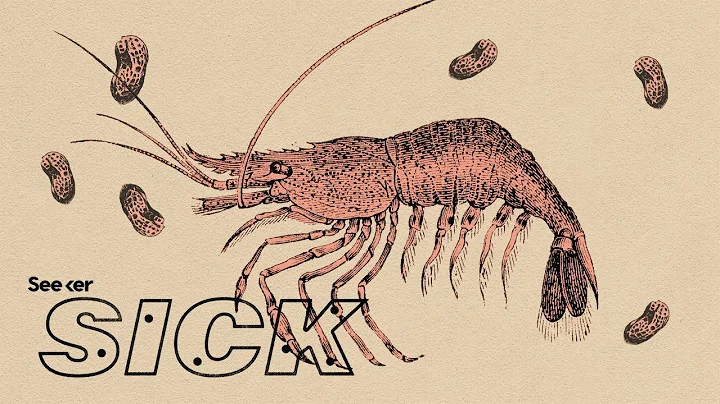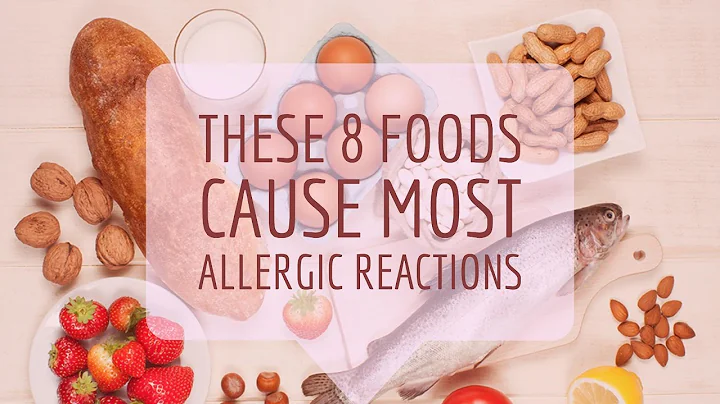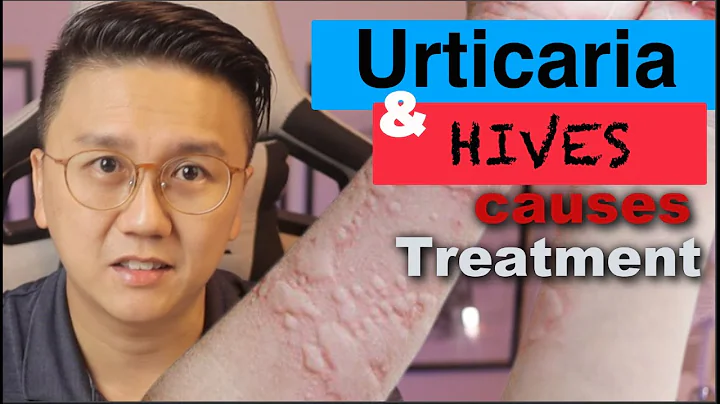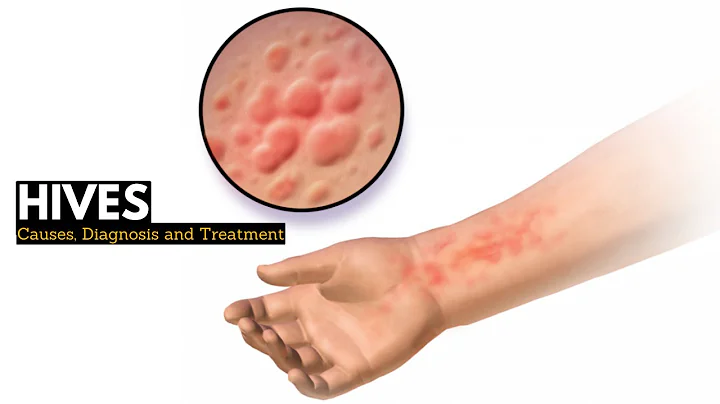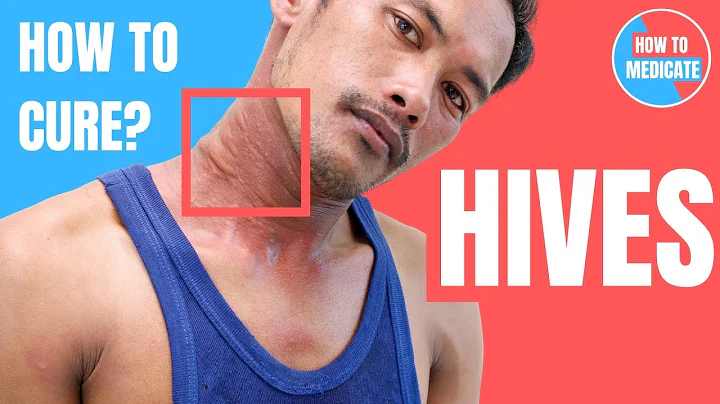The most common cause of urticaria is due to eating certain allergenic foods. Therefore, the dietary taboos of this disease play an important role in the onset and prognosis (such as acute to chronic).

What should you not eat if you have urticaria? Diet taboos for urticaria
Symptoms of urticaria
Urticaria is a very common skin disease, which appears as sudden and scattered red rashes, or as a large area of red bumps, anywhere on the body. It may happen, and it comes and goes easily, and is ever-changing, so it is also commonly known as "rubella". When urticaria attacks, patients will feel itching, which seriously affects the patient's quality of life.
Diet taboos for urticaria
The occurrence of urticaria is mainly caused by allergic reactions, and the most common trigger is food. Many patients often develop urticaria after eating fish, shrimp, crab, eggs, beef, strawberries, cocoa , tomatoes, garlic and other foods; in addition, food additives such as condiments, pigments, preservatives, etc. can also Cause allergies.
Foods you should not eat if you have urticaria
1. Avoid eating seafood: Eating seafood can easily cause diseases. Excessive amounts of histamine contained in seafood can cause physical discomfort. A small number of people are born with a lack of enzymes that decompose histamine and eat fresh fish. Fresh fish or seafood can cause allergies. Such as: fish, shrimp, crab, shellfish, etc.
2. Avoid eating animal protein foods, such as chicken, goose, sheep, cattle, pig head meat, milk, cream products, eggs, etc.
3. Plant foods in daily life such as strawberries, cocoa, tomatoes, garlic, mushrooms, mango, coriander, etc. can also become allergens and sources.
4. Food additives such as condiments, pigments, preservatives, etc. can also cause allergies.
Diet precautions for urticaria
The final way to decide what to avoid is the food elimination method, that is, only light foods that are not commonly allergic are allowed to be eaten, and then the above-mentioned allergenic foods are added one by one, and the reaction is observed to determine a certain Or certain allergenic foods, and then strictly avoid eating them.
You should pay attention to avoid eating foods such as fat, seafood, spicy food, etc. In addition to following the above-mentioned taboos, you should also strictly avoid eating rough and indigestible foods during the disease period, such as fried, deep-fried, smoked and grilled vegetables, and vegetables containing high fiber content such as leeks, coriander, bamboo shoots, pickles, etc. Otherwise, Easy to damage gastrointestinal mucosa.
Home remedies for treating urticaria (for reference only)
1, Do not take suspicious foods or medicines, and pay attention to whether bowel movements are normal
The symptoms of urticaria are redness, swelling, and itching of the skin. The reasons vary as shown below, and there are many cases where the cause is unknown. The redness and swelling are large and may appear anywhere on the body. The symptoms are intense and rapid and are called acute urticaria. A rash appears all over the body, which may last for a few hours or may take several days to disappear. The symptoms of chronic urticaria are mild and only appear locally. It may last for a long time from a month to a year. The treatment method is to inject or take antihistamines or anti-allergic agents orally, which can alleviate the symptoms.
2, If the cause is fish and shrimp, perilla can be used.
If urticaria occurs due to eating fish, shrimp, and crab, you can eat a large amount of fresh perilla leaves , or drink the boiled juice of perilla leaves. The recipe is made by boiling 5 grams of dried perilla leaves and 200 grams of water.
3, Chronic urticaria can be treated with sesame seeds
People whose skin is prone to urticaria can often eat sesame seeds to improve their physique, enhance their physical strength, strengthen their skin, and avoid rashes easily. Eating black sesame paste regularly has good effects.
4, Peach leaves can be used as a bath agent
The soup of peach leaves can inhibit the itching of urticaria and has the effect of preventing and treating urticaria. Dry the raw peach leaves in the shade, mash them into gauze bags, and place them in the bathtub. Boil the water and pour it into the bathtub. After cooling to the appropriate temperature, slowly soak your body in the bathtub. The effect is very good.
5, The decoction method of loquat leaves is also effective.
The decoction method of loquat leaves is also effective in treating prickly heat and urticaria. Take three leaves, crush them with your hands, put them into 500 grams of water and boil them.After the juice has cooled down, use it to clean the affected area. You can also put loquat leaves in a gauze bag and put them in the bath water for a while to use as a bath agent. 6. Things that should be avoided when the rash is severe. Foods that Chinese medicine believes will make the blood dirty will worsen the urticaria. Stale shrimps, crabs, cockroaches, oysters and shellfish, as well as bamboo shoots, glutinous rice, chocolate, coffee, spices, sugar, etc., should not be eaten when a rash occurs. People who are prone to urticaria should always pay attention to eating these. food. In addition, foods that cause urticaria should be avoided.
Beware of food "spreading" urticaria
Polypeptides are decomposed into peptides after food becomes corrupted (such as stinky tofu, rotten eggs, spoiled fruits, etc.), and proteins in food are not digested well and are converted into peptides or peptones. If absorbed into the bloodstream, it can easily cause allergic reactions and induce urticaria. Therefore, to prevent urticaria, you must avoid foods that may cause allergies. In many patients, recurring episodes of urticaria are closely related to carelessness in diet.
In addition to food, animal hair, dander, pollen, gasoline, dust, fungal spores and even insect bites are also causes of urticaria. The onset of disease in a small number of patients is related to the use of medications, such as penicillin, serum products, vaccines, sulfonamide preparations, etc. Infections with Streptococcus, Mycobacterium tuberculosis, and hepatitis viruses in the body, as well as connective tissue diseases (such as lupus erythematosus), vasculitis, and tumors can also induce allergic reactions.
Urticaria treatment
should focus on two aspects: blocking allergens and anti-allergic treatment.
Blocking allergens means finding out the triggers of the disease as much as possible and removing them. For example, be careful not to inhale pollen, animal dander, feathers, dust, castor powder, avoid contact with allergens, and prohibit or fast certain drugs or foods that are allergic to the body. For those patients who are prone to relapse after hot and cold stimulation, they should not avoid it too much. Instead, they should be exposed gradually and adapt to it by gradually extending the time of hot and cold stimulation. For allergies caused by their own lesions, patients should actively treat the original disease to eliminate allergens.
It is difficult for most patients to find a clear allergen. In this case, oral anti-allergic drug can be used to treat it. Antihistamine drugs are a type of commonly used anti-allergic drugs. However, first-generation antihistamine drugs often have central nervous system side effects such as drowsiness and fatigue or cardiac side effects. Second-generation antihistamine drugs such as Claritan can It blocks the combination of histamine and histamine receptors to prevent allergic reactions, quickly relieves skin allergy symptoms, and has no central nervous system or cardiac side effects, no drowsiness, and does not affect normal work and study, so it has been widely used.


